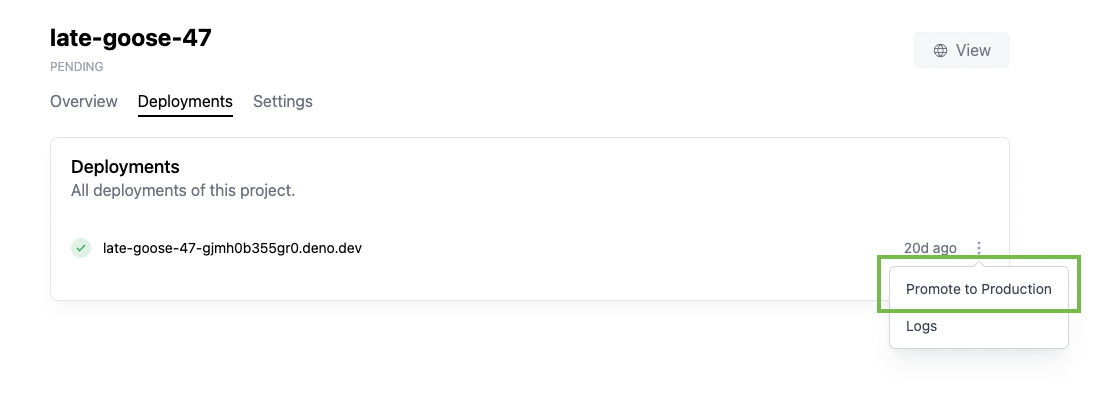Deployments
A deployment is a snapshot of the code and environment variables required to run
an application. A new deployment can be created
via deployctl or automatically via Deploy's Github
integration if configured.
Deployments are immutable after they have been created. To deploy a new version of the code for an application, a new deployment must be created. Once created, deployments remain accessible.
All available deployments are listed on your project page under the
Deployments tab, pictured below. Old deployments can be deleted
via deployctl and
via API.

Custom domains
There can also be other URLs that can point to a deployment, like custom domains.
Branch domains
<projectname--branchname>.deno.dev is also supported.
Production vs. preview deployments
All deployments have a preview URL that can be used to view this specific
deployment. Preview URLs have the format
{project_name}-{deployment_id}.deno.dev.

A deployment can either be a production or a preview deployment. These
deployments do not have any differences in runtime functionality. The only
distinguishing factor is that a project's production deployment will receive
traffic from the project URL (e.g. myproject.deno.dev), and from custom
domains in addition to traffic to the deployment's preview URL.
Promoting preview deployments to production deployments via Deno Deploy UI
Preview deployments can be "promoted" to production via the Deno Deploy UI:
- Navigate to the project page.
- Click on the Deployments tab.
- Click on the three dots next to the deployment you want to promote to
production and select Promote to Production

Promoting deployments to production is restricted to deployments that already
use the production KV database. This is particularly relevant for GitHub
deployments that use a different database for preview and production
deployments. Deployments (even those that use the preview KV database) can
always be redeployed to production using
the deployctl deployments redeploy command.
Creating production deployments via deployctl
If you are deploying your Deno code with deployctl, you can deploy directly to
production with the --prod flag:
deployctl deploy --prod --project=helloworld main.ts